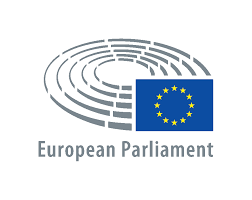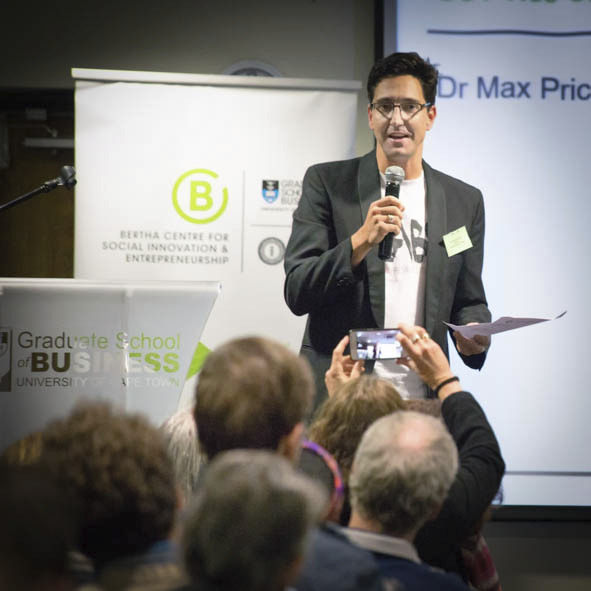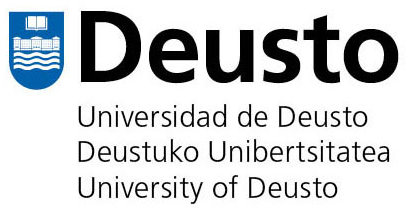| |
Welcome to the SI-Drive Newsletter
Twelfth edition
|
|
|
| |
Welcome to the twelfth eNewsletter of SI-DRIVE, a large-scale research project funded in the European Union’s 7th Framework Programme (FP 7). In our twelfth edition we focus amongst others on the abbreviated version of the "Comparative Analysis" of the mapping results.
|
|
About SI-DRIVE
|
|
|
| |
Social innovation on the rise
Abbreviated version of the comparative Analysis available
|
|
|
| |
In the EU-funded large scale project SI-DRIVE “Social Innovation: Driving Force of Social Change”, 25 project partners have mapped 1.005 initiatives in seven policy fields on all five continents. Results of the comparative analysis give insights into the highly diverse world of social innovation, the variety of actors and their interaction, and the systemic character of the concept. This comparative analysis is an explorative inventory of an empirically under-researched area. It includes social innovations in education and lifelong learning, employment, environment and climate change, energy supply, transport and mobility, health and social care, and poverty reduction and sustainable development. It shows that social innovation has become a ubiquitous concept. The key results of the mapping are available here.
|
|
SI-DRIVE Publication
|
|
|
| |
EU parliament briefing on Social Innovation
"Understanding Social Innovation"
|
|
|
| |
A short brief "Understanding Social Innovation" by the European Parliament's Research Service is inspired by first results of the SI-DRIVE project: Social innovation has become an important concept in European policy-making, cutting across sectors and disciplines. However, despite the increasingly frequent use of the term there is no consensus as regards its definition. As a result, in part of extensive research work at EU level, it is currently interpreted as a ubiquitous concept that entails new ideas (products, services and models) that simultaneously meet social needs (more effectively than alternatives) and create new social relationships or forms of collaboration.
The concept is strongly related to notions of solutions to satisfy social needs and addresses societal challenges and transformation. European policies promote social innovation in several sectors, such as the single market, employment and social affairs, health, education, energy, environment, and research. Within the EU, numerous policy and financial tools together with the (previous and current) research programme contribute to this process. However, there is still much to be done in terms of finding a comprehensive and well accepted theoretical approach to social innovation, efficient funding and regulatory environments, and also a way to measure its social (added) value. Without these, social innovation runs the risk of becoming an empty buzzword in policy-making.
|
|

|
|
|
| |
"free MOOC" on social innovation
Focus on changemakers and social entrepreneurs
|
|
|
| |
The Bertha Centre – a specialised centre, at UCT Graduate School of Business (based in Cape Town, South Africa), and partner of SI-DRIVE – in partnership with UCT’s Centre for Innovation in Learning and Teaching and RLabs launched its first free massive open online course (MOOC) earlier this year. The course titled "Becoming a changemaker: Introduction to Social Innovation" is a free six week course, aimed at changemakers and social entrepreneurs and/or innovators who would like to address challenges in their communities. Its unique selling point is that it is also being offered through in-person facilitated classes. To date the course has nearly 5.000 learners enroled, with over 30% of them from the African continent. To enrol and read more on the MOOC click here.
Image description: François Bonnici, Director of the Bertha Centre for Social Innovation and Entrepreneurship based at the University of Cape Town, at the launch of the MOOC.
|
|
 |
|
|
| |
Business models and models of support in social inclusion
The collaborative economy, the circular economy and the notion of the common good
|
|
|
| |
The SI-DRIVE partner, the University of Deusto investigates the collaborative economy, the circular economy and the notion of the common good as new models of social relationships and doing business, associated with social inclusion.
The model of the collaborative economy is presented as an alternative to both, market capitalism and planned economy; it is focused on serving the general interests, the public good, displacing profit and competition. The traditional ways of sharing, exchanging, lending, renting and gifting are redefined through modern technology and communities, in which access and use have priority over ownership.
Around this concept, the Social Innovation team of the University of Deusto has presented its work in the written media and social networks in recent months. [Read more]
|
|

|
|
|
| |
New Publications on Social Innovation
the Innovative finance ecosystem across Africa, workplace innovation in european companies and social innovation in LAtin America
|
|
|
| |
"The Innovative Finance in Africa Review" was launched by the Bertha Centre, a specialised centre at UCT Graduate School of Business, which is based in Cape Town (South Africa). The review is a showcase of the outstanding models and practices that make up the innovative finance ecosystem across Africa. [Read more]
The paper "Workplace innovation as social innovation in European companies" (authors: Peter R.A. Oeij, Steven Dhondt, Rita ŽiauberytÄ—-JakštienÄ—, Antiono Corral, Peter Totterdill) was nominated for an award of the International Society for Professional Innovation Management ISPIM.
The publication "Social Innovation in Latin America" ("Innovación Social en Latinoamérica"), edited by Dmitri Domanski, Nicolás Monge, Germán Quitiaquez and Daniel Rocha, explores social innovation in Latin America from a wide range of perspectives, with experts from academia, governmental institutions and civil society making an important contribution to a better understanding of this topic. [Read more]
|
|
New releases
|
|
|
| |
Events focusing on Social Innovation and SI-DRIVE...
...in Europe, Asia and Latin America
|
|
|
| |
In the course of the XIV. International Triple Helix Conference in Heidelberg (Germany) from 25th to 27th September 2016, a panel discussion titled "Social Innovation: On the Roles of Universities" was organised by Doris Schartinger and Matthias Weber from the AIT Austrian Institute of Technology, which is also partner of SI-DRIVE. [Read more]
During the ISPIM Innovation Summit in Kuala Lumpur between 4th and 7th December 2016 Peter Oeij (from SI-DRIVE partner organisation TNO) presented a talk about "Workplace innovation as social innovation in European companies".
Jürgen Howaldt and Dmitri Domanski from TU Dortmund University, which is also SI-DRIVE lead partner, were traveling on behalf of Social Innovation across Latin America. The following contributions offer detailed information:
|
|
Event review
|
|
|
|
| |
The SI-DRIVE team at ZSI wishes you all the best for the Holiday Season. Have a relaxing break and a prosperous New Year!
|
|
Season's Greatings
|
|
|
| |
CominG Soon...
...Thirteenth SI-DRIVE Newsletter
|
|
|
| |
The thirteenth SI-DRIVE newsletter will be issued in March 2017. Please register at our si-drive website if you are willing to receive regular information. |
|
13th SI-DRIVE Newsletter
|
|
|
|
|
|